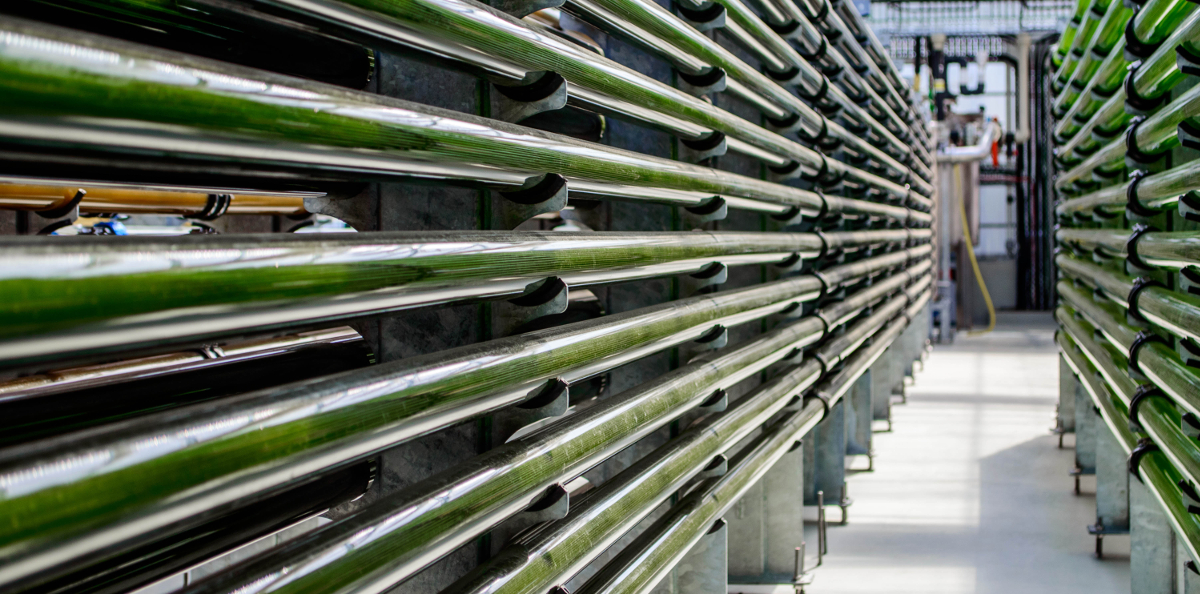 |
|---|
Scientists have found a way of producing electricity and fuel for cars from bacteria and green algae, and scaling up these techniques could create a reliable source of renewable energy that could be used as an alternative to fossil fuels.
While it has been known for over a century that bacteria can shed energy in the form of electric charges and chemical fuels, the challenge has been in extracting these resources and putting them to use.
Researchers at Wageningen University in the Netherlands have developed a biological system capable of drawing out electric charges generated by living organisms and regenerating them continuously.
Dr Marjolein Helder uses electrons that are released by soil bacteria as a natural by-product of digesting plant nutrients. With support from the EU-funded PlantPower project, Dr Helder has developed the microbial equivalent of a fuel cell. By planting one carbon electrode in wet soil and putting the other in contact with surface oxygen, enough charges can be extracted from each square metre of arable land to light an LED.
While the power output of microbial fuel cells may be modest, their stamina is impressive. So long as sunlight feeds surface vegetation, the soil bacteria can produce energy indefinitely. As an added benefit, the biological reactions that generate electricity also hinder the underground production of methane - a powerful greenhouse gas.
Dr Helder has founded a company called Plant-e to commercialise the technology. Its first contracts include garden lighting for the Dutch Ministry of Economic Affairs and powering the Wi-Fi system over a municipal school playground.
Heating and transport
However, for all the benefits of green electricity, the bulk of today's energy demand is met by chemical fuels, not electric currents. Comprehensive solutions to climate change must also find substitutes for the gas and oil currently used in the heating and transport sector.
Professor Peter Lindblad at Uppsala University in Sweden is working to genetically modify microbes to take advantage of their ability to photosynthesise, creating bacteria that turn sunlight and water into hydrogen and carbon-based biofuels.
'Almost any microorganism can produce hydrogen,' said Prof. Lindblad. 'The challenge is that almost none of them release it.' Attempts at extracting the biologically metabolised fuel must find a way around nature's inherent thriftiness.
Over the past four years, Prof. Lindblad has coordinated the EU-funded CyanoFactory project to develop biochemical techniques that allow scientists to pick genes from foreign organisms and incorporate them into the DNA of photosynthetic microbes, essentially reprogramming the internal chemistry of their cells.
Each new biological trait is a gamble, as even subtle alterations in a cell's DNA can cascade into undesired chemical reactions. Most often, genetically modified bacteria die from side effects of the mutation. Sometimes the desired trait survives but its productivity is low. The challenge is then to knock out other chemical pathways in the cell and focus its efforts on producing hydrogen.
Through iterative experimentation, Prof. Lindblad's consortium succeeded in incorporating compatible genes into photosynthetic bacteria and countering their natural tendencies to retain hydrogen. The resulting microbes also accelerated hydrogen production, converting sunlight into fuel three times as efficiently as conventional plants do.
Solar fuels
The genetic tricks pioneered by Prof. Lindblad are now being put to work in engineering bacteria and green algae that can use sunlight to lock carbon dioxide back into alcohols and hydrocarbons. These solar fuels are more complex to synthesise than hydrogen, but they present the advantage of being compatible with existing transport infrastructure.
As part of the EU-funded Photofuel project, a consortium led by automotive manufacturer Volkswagen is advancing this technology to produce solar fuels that can substitute diesel and gasoline.
They have built sealed outdoor bioreactors which act as microbe farms and can be deployed over barren or even built-up environments. The first test facility is indeed located on the roof of Imperial College in the centre of London, UK.
According to Professor Olaf Kruse at the Center for Biotechnology in Bielefeld University, Germany, if genetically modified microbes can deliver fuel while remaining intact, they could act as never-ending solar fuel plants.
'Future biofuels would no longer harvest living cells,' said Prof. Kruse. 'They would, in essence, milk them.'
This approach aligns with what Dr Helder perceives as a shift in sustainable energy research towards technologies that work in collaboration with nature, rather than instead of it. 'The objective is not to produce as much green power as possible,' she said. 'But to fit energy production within broader human activities, into a more sustainable way of life.'
- Previous How do solar panels work?
- Next Let there be light!










Comments
Add a comment